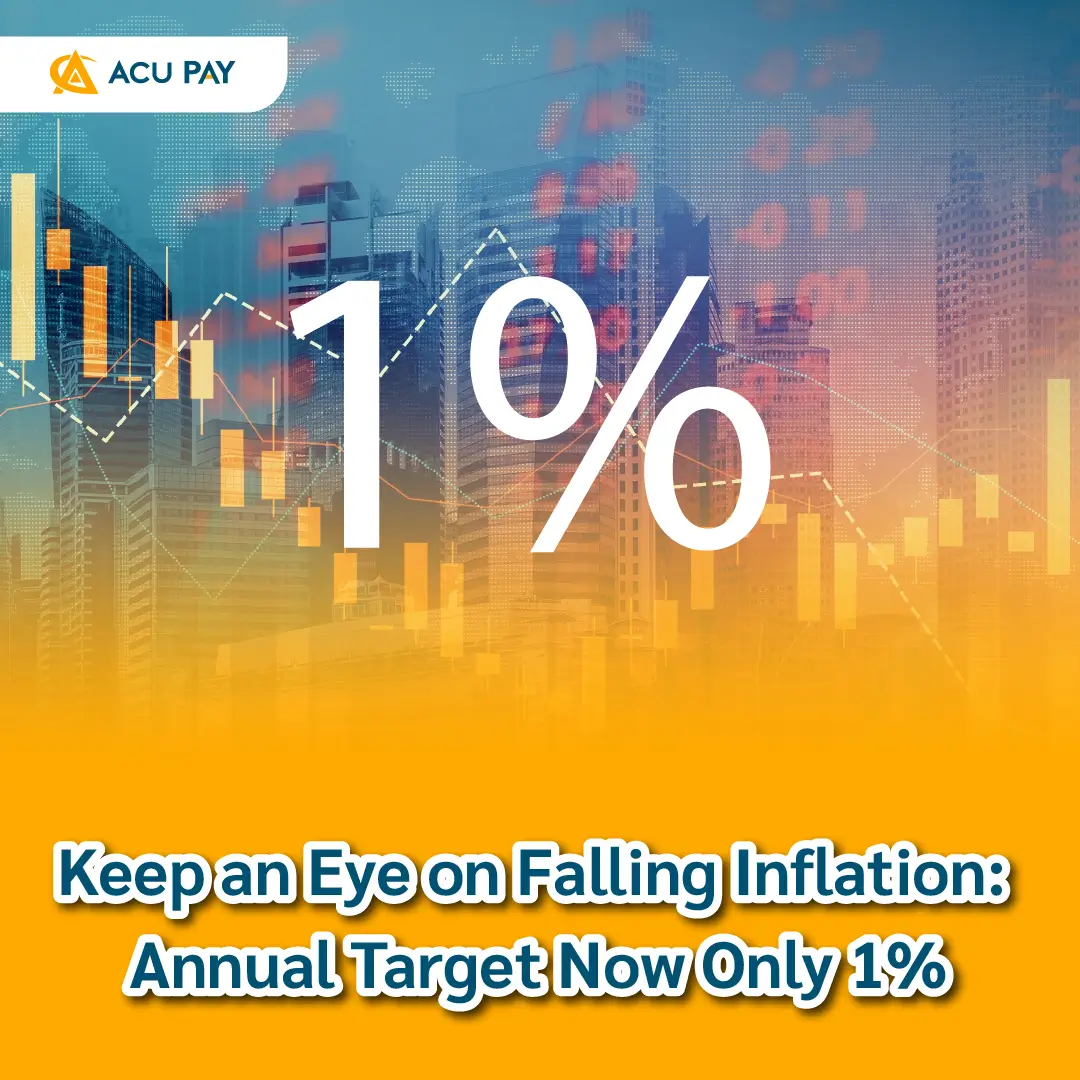

The Office of Trade Policy and Strategy (TPSO) has released Thailand’s latest general inflation data for May 2025, showing a year-on-year decrease of 0.57%. As a result, the Ministry of Commerce has revised its annual inflation forecast downward to a range of 0.0–1.0%. This marks the lowest inflation rate in ASEAN and the 7th lowest globally among 133 reported economies.
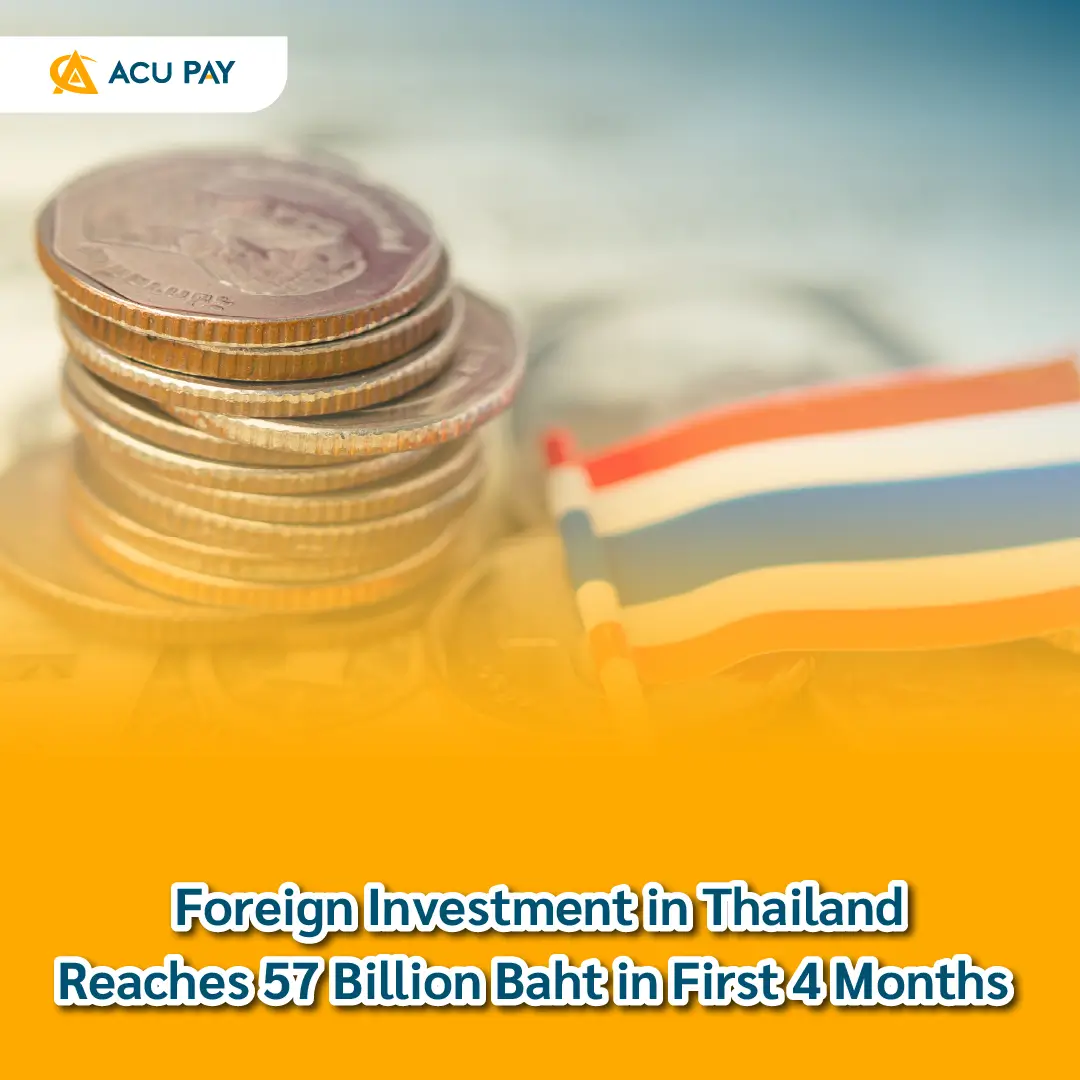



Foreign Investment in Thailand Reaches 57 Billion Baht in First 4 Months. Japan Leads, EEC Attracts 31 Billion Baht
In the first four months of 2025, Thailand continued to be a popular place for foreign investors. A total of 363 foreign companies received permission to do business in the country, with investments adding up to 57.86 billion baht. This is an increase of 110 companies (or 43%) and 2.9 billion baht (about 5%) compared to the same time last year. The data reflects growing foreign investor confidence in Thailand’s economic potential and business opportunities.
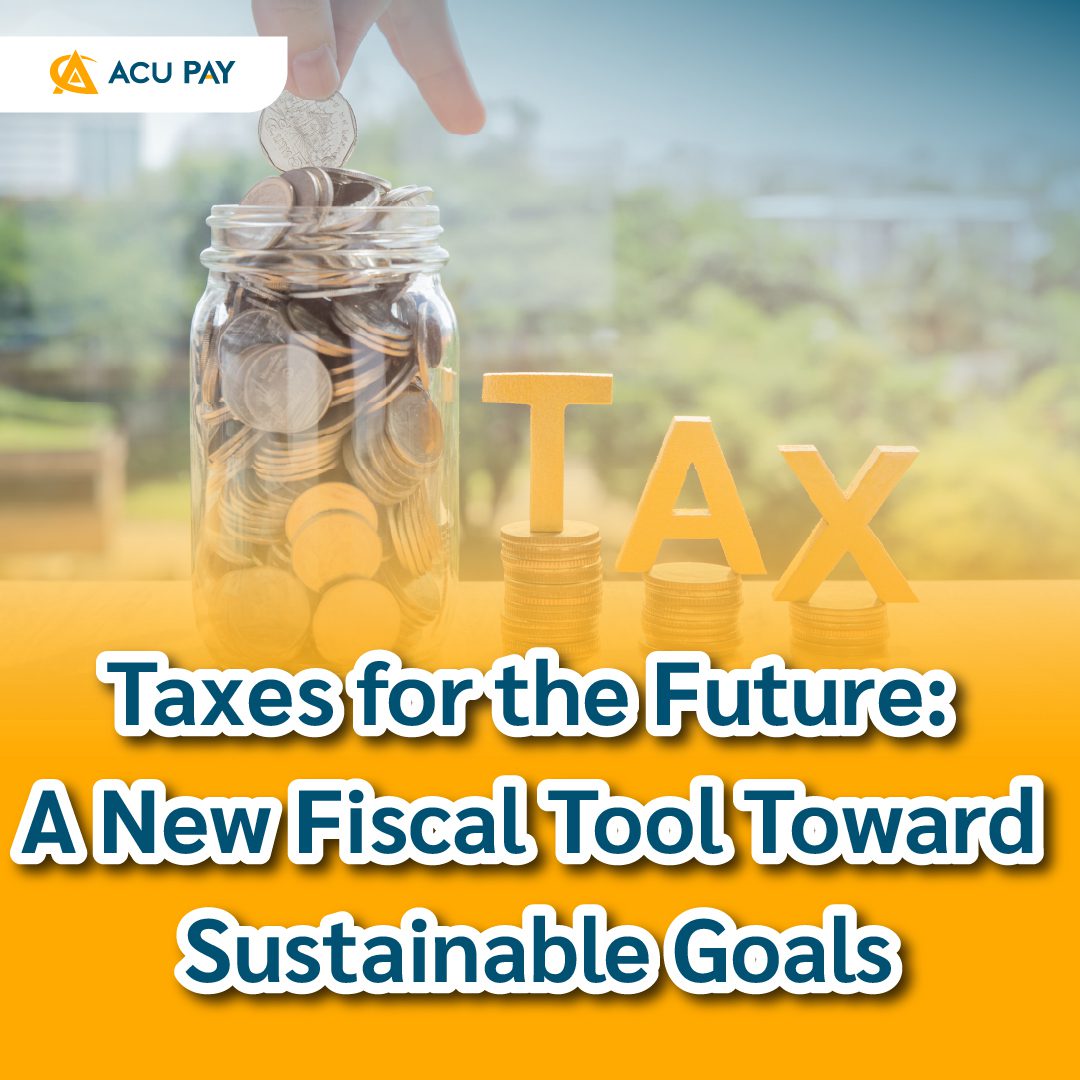



In an era where the world faces numerous challenges—environmental issues, economic inequality, and financial uncertainty—economic growth can no longer focus solely on expanding GDP. Instead, it must aim for sustainable growth that encompasses environmental, social, and fiscal dimensions. This is essential for maintaining economic stability and adapting efficiently to long-term changes.



The beginning of many scams often stems from enticing advertisements on social media — such as offers of free money, free trials, or messages from fake accounts inviting users to invest, claiming to have secret techniques or winning formulas. Initially, victims might receive some returns, making them believe it’s real, and they gradually invest more. Eventually, the system, which is programmed to deceive, begins to drain all their money, leaving players unable to truly win.
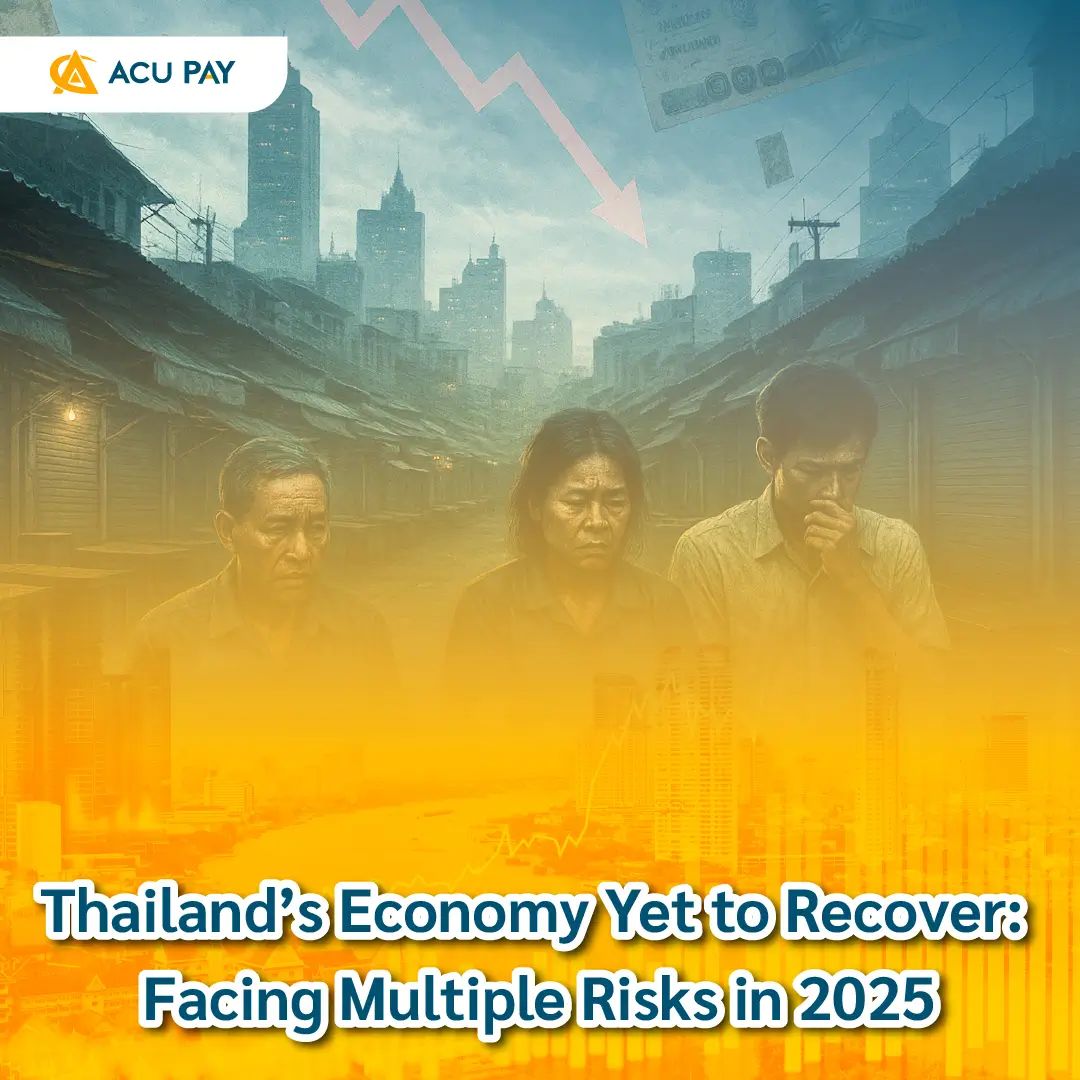


Despite hopes from various sectors that Thailand’s economy will improve in 2025 compared to the previous year, many economists are saying the same thing: the Thai economy remains under heavy pressure from both domestic and global challenges. Several research institutions forecast GDP growth this year at only 2–2.7%, which is below its potential — and could decline further if global conditions worsen.



In today’s world, we are unavoidably living in an “era of rising prices.” The cost of goods and services is steadily increasing, especially for fresh food items such as pork, chicken, eggs, and seafood, as well as fuel and public transportation costs. All of this reflects the impact of inflation, which is affecting our daily lives in a way that cannot be ignored.



On April 17, 2025, Mr. Pichai Naripthaphan, Thailand’s Minister of Commerce, held discussions with Mr. Tengku Datuk Seri Zafrul Abdul Aziz, Malaysia’s Minister of Investment, Trade, and Industry, who is also serving as Chair of the ASEAN Economic Ministers for the year. The two strategies discussed to handle the U.S. new trade policies, especially the countervailing duties, are negotiating with the U.S. and imposing retaliatory tariffs, which could impact several ASEAN member states.
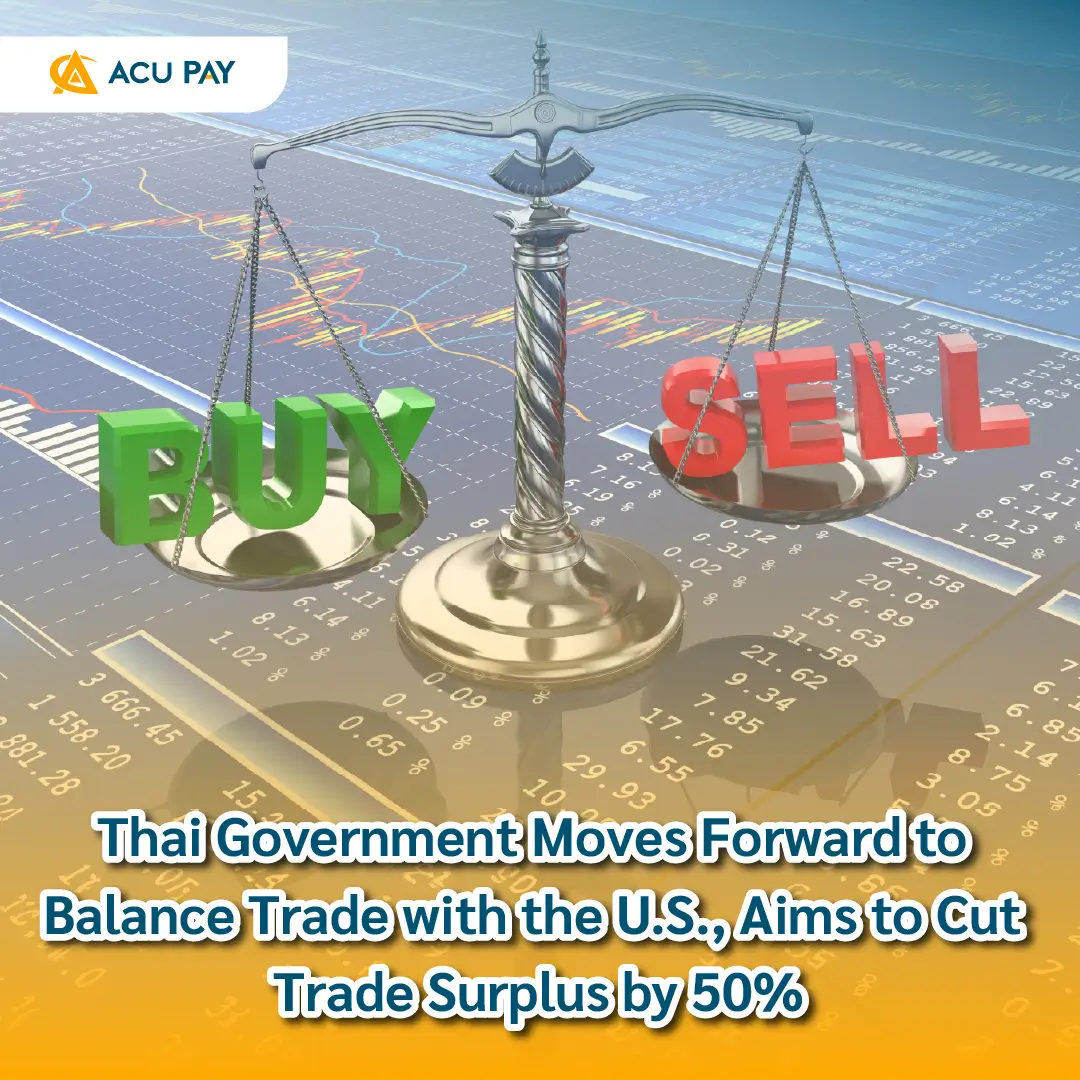


Thai Government Moves Forward to Balance Trade with the U.S., Targets a 50% Reduction in Trade Surplus within 5 Years
The Thai government is strengthening trade negotiations with the U.S. after being closely watched as one of the countries with the largest trade surpluses with the U.S. In 2024, Thailand recorded a trade surplus of over $35 billion, and the 2025 forecast could reach $45 billion, placing Thailand among the top 10 countries with the largest trade surpluses.



Thailand is currently in the process of deciding whether to extend the contract to continue hosting MotoGP, as the current agreement ends in 2026. If the extension happens, discussions must begin this year.



Following the earthquake on March 28, which affected many areas of Bangkok and its surrounding provinces, the Ministry of Finance has assured the public that the government is closely monitoring the situation. Relevant agencies have been instructed to urgently implement measures to assist affected citizens and businesses.

The Office of Trade Policy and Strategy (TPSO) has released Thailand’s latest general inflation data for May 2025, showing a year-on-year decrease of 0.57%. As a result, the Ministry of Commerce has revised its annual inflation forecast downward to a range of 0.0–1.0%. This marks the lowest inflation rate in ASEAN and the 7th lowest globally among 133 reported economies.




Foreign Investment in Thailand Reaches 57 Billion Baht in First 4 Months. Japan Leads, EEC Attracts 31 Billion Baht
In the first four months of 2025, Thailand continued to be a popular place for foreign investors. A total of 363 foreign companies received permission to do business in the country, with investments adding up to 57.86 billion baht. This is an increase of 110 companies (or 43%) and 2.9 billion baht (about 5%) compared to the same time last year. The data reflects growing foreign investor confidence in Thailand’s economic potential and business opportunities.




In an era where the world faces numerous challenges—environmental issues, economic inequality, and financial uncertainty—economic growth can no longer focus solely on expanding GDP. Instead, it must aim for sustainable growth that encompasses environmental, social, and fiscal dimensions. This is essential for maintaining economic stability and adapting efficiently to long-term changes.



The beginning of many scams often stems from enticing advertisements on social media — such as offers of free money, free trials, or messages from fake accounts inviting users to invest, claiming to have secret techniques or winning formulas. Initially, victims might receive some returns, making them believe it’s real, and they gradually invest more. Eventually, the system, which is programmed to deceive, begins to drain all their money, leaving players unable to truly win.



Despite hopes from various sectors that Thailand’s economy will improve in 2025 compared to the previous year, many economists are saying the same thing: the Thai economy remains under heavy pressure from both domestic and global challenges. Several research institutions forecast GDP growth this year at only 2–2.7%, which is below its potential — and could decline further if global conditions worsen.



In today’s world, we are unavoidably living in an “era of rising prices.” The cost of goods and services is steadily increasing, especially for fresh food items such as pork, chicken, eggs, and seafood, as well as fuel and public transportation costs. All of this reflects the impact of inflation, which is affecting our daily lives in a way that cannot be ignored.



On April 17, 2025, Mr. Pichai Naripthaphan, Thailand’s Minister of Commerce, held discussions with Mr. Tengku Datuk Seri Zafrul Abdul Aziz, Malaysia’s Minister of Investment, Trade, and Industry, who is also serving as Chair of the ASEAN Economic Ministers for the year. The two strategies discussed to handle the U.S. new trade policies, especially the countervailing duties, are negotiating with the U.S. and imposing retaliatory tariffs, which could impact several ASEAN member states.



Thai Government Moves Forward to Balance Trade with the U.S., Targets a 50% Reduction in Trade Surplus within 5 Years
The Thai government is strengthening trade negotiations with the U.S. after being closely watched as one of the countries with the largest trade surpluses with the U.S. In 2024, Thailand recorded a trade surplus of over $35 billion, and the 2025 forecast could reach $45 billion, placing Thailand among the top 10 countries with the largest trade surpluses.



Thailand is currently in the process of deciding whether to extend the contract to continue hosting MotoGP, as the current agreement ends in 2026. If the extension happens, discussions must begin this year.



Following the earthquake on March 28, which affected many areas of Bangkok and its surrounding provinces, the Ministry of Finance has assured the public that the government is closely monitoring the situation. Relevant agencies have been instructed to urgently implement measures to assist affected citizens and businesses.